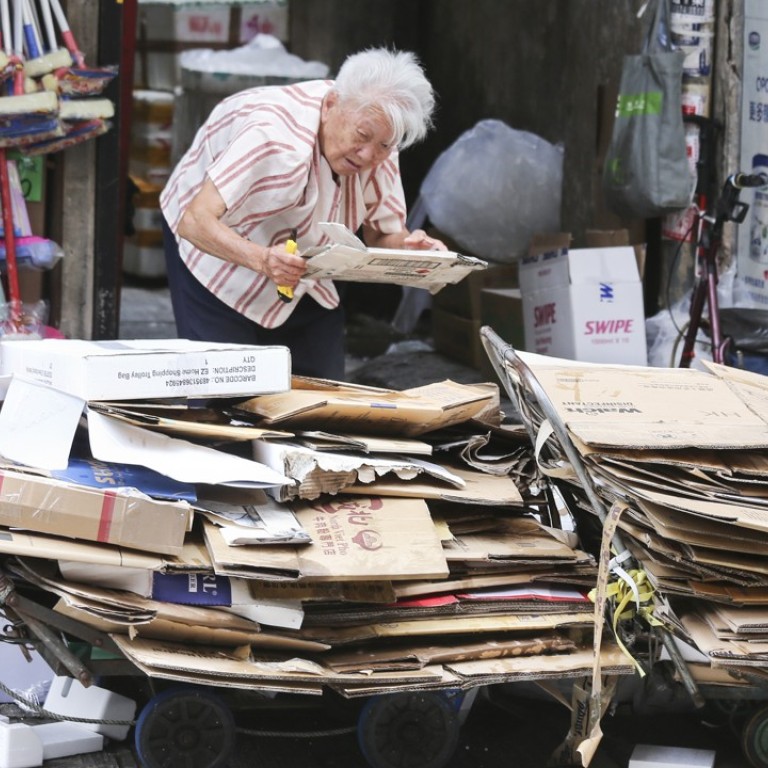
Wake up to the crazy rich-poor divide in Hong Kong, and the government’s role in perpetuating the misery
Alice Wu says some of the figures in Hong Kong are mind-boggling. One in five lives below the poverty line, while one in seven is a millionaire and the government has an embarrassment of riches. So why isn’t it doing more for those in need?
Well, it’s probably hard to see how bad things are when you’re “comfortable” – as Nick Young, the male protagonist of the hot new film Crazy Rich Asians, calls it. But buying a tiny home at a crazy price is not “fine”.
Last month, one such woman was fined HK$1,500 for “littering”. And it took a fully fledged public campaign – complete with an online petition – to get her off the hook. Others often have their trolleys confiscated by officers.
So, while we have critics accusing the government of taking ineffective measures to alleviate poverty, there are mean-spirited public servants targeting impoverished old ladies in the streets – creating the abomination of suffering heaped on the desolate.
It’s a disgrace that 24-hour fast-food outlets have effectively become part of Hong Kong’s social welfare system. McRefugees aren’t necessarily jobless and homeless, but they find it hard to make ends meet, what with the costs of air-conditioning, transport and food – not to mention rent.
The welfare chief wondered whether Hong Kong needed more policies to encourage births. Well, Dr Law Chi-kwong could start by looking at all the money the government has made in land sales.
The government cannot wash its hands of all responsibility for driving up prices, shrinking flats, and perpetuating intergenerational poverty. And yet, it hasn’t summoned the courage to set a minimum flat size, nor the will to build enough public housing. And that, ladies and gentlemen, is crazy poor governance, typical of a crazy rich government that is out of touch, out of ideas, and so poor that all it’s got is money.
Alice Wu is a political consultant and a former associate director of the Asia Pacific Media Network at UCLA

